Scarring After Incision Surgery
You can’t avoid scarring 100% when a surgery involves an incision.
Even if the procedure is done exactly the same way, using the same materials and suture techniques, scar outcomes will vary from person to person.
The scar shown on the right (image) is a good example of what a typical post-surgery scar can look like.
Over time, scars usually fade and become less noticeable, but proper wound care is crucial for the best possible healing.
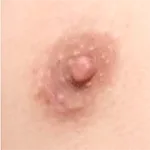

After surgery, caring for your scars requires a personal commitment.
The images above show examples of scars that have not healed as well as they could.
Once your sutures are removed, it’s generally recommended to continue using Steri-Strips for an extended period—at least two months—to support optimal healing.
Let’s explore why Steri-Strips are so important and how to use them effectively.
The Use of Steri-Strips After Gynecomastia Surgery
Although scarring is a normal part of the healing process, thoughtful post-operative care can help minimize scar visibility and ensure healthy wound healing. At Evita Clinic, we often use Steri-Strips to protect incisions and promote optimal recovery. Below, we explain what Steri-Strips are, why they’re used, and how to care for them.
1. What Are Steri-Strips?
- Medical-Grade Adhesive Strips
Steri-Strips are specialized adhesive tapes designed to keep the edges of an incision or minor cut together. They have stronger adhesion than regular bandages and allow the wound to “breathe,” which supports healing. - Supplementary to Sutures
While sutures (stitches) or surgical staples provide the primary closure immediately after surgery, Steri-Strips can be applied after suture removal (or alongside sutures in some cases) to further support the wound and reduce tension on the healing skin.
2. Why Are Steri-Strips Used After Gynecomastia Surgery?
- Adhesion & Flexibility
Steri-Strips adhere better than ordinary medical tape and can flex with normal body movements, reducing stress on the incision site. - Breathable Material
Their breathable design allows air circulation, promoting a healthier environment for wound healing. - Helps Minimize Scar Widening
By stabilizing the edges of the incision, Steri-Strips help prevent the scar from stretching further than necessary, which can result in a neater, less noticeable scar over time.
3. Duration of Steri-Strip Use
4. How to Remove Steri-Strips Safely
Removing Steri-Strips too quickly or forcefully can damage new tissue or disrupt the healing process.
- Soften the Adhesive
Gently soak the area with warm water or mild soap to help loosen the adhesive. - Go Slow
Pull the Strip away gradually and carefully to avoid pulling off newly formed skin or scabs.
5. Additional Wound Care Tips
- Check Your Incision Daily
Keep an eye out for redness, swelling, excess pain, bleeding, or unusual discharge. Consult your surgeon if anything seems concerning. - Clean and Dry
After showering, gently pat the incision dry and apply any recommended antiseptics or ointments. - Avoid Strenuous Activities
Refrain from heavy lifting or intense exercise until you have your surgeon’s approval. Sudden or forceful movements can strain the incision. - Attend Follow-Up Appointments
Regular check-ups allow your surgeon to evaluate your healing progress, answer questions, and address any issues early on.
Applying Steri-Strips: A Step-by-Step Photo Guide
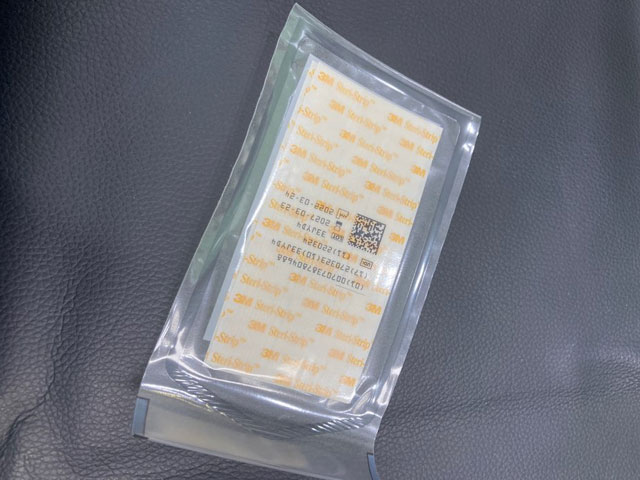
Steri-strip by 3M, prescribed at our clinic after gynecomastia surgery.
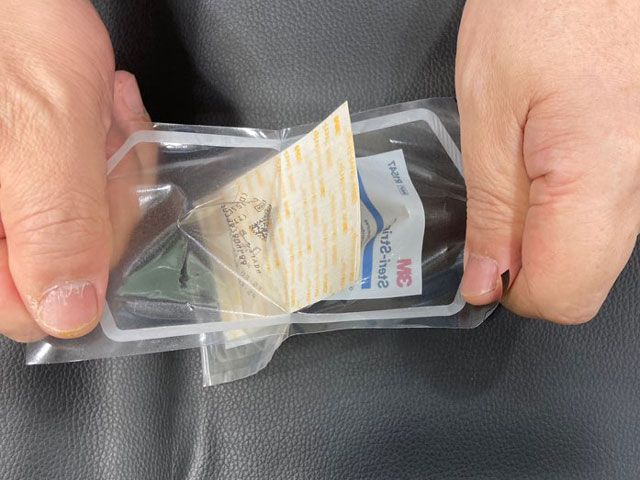
Wash your hands and open the product packaging when they are dry.
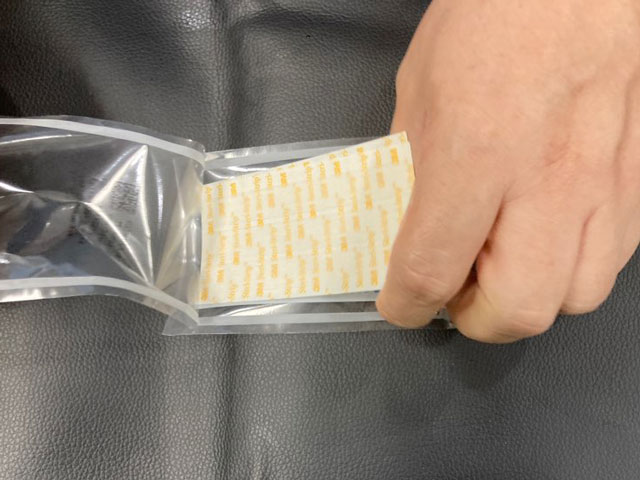
The Steri-Strip, we prescribed is 4 inches (10 cm) long.
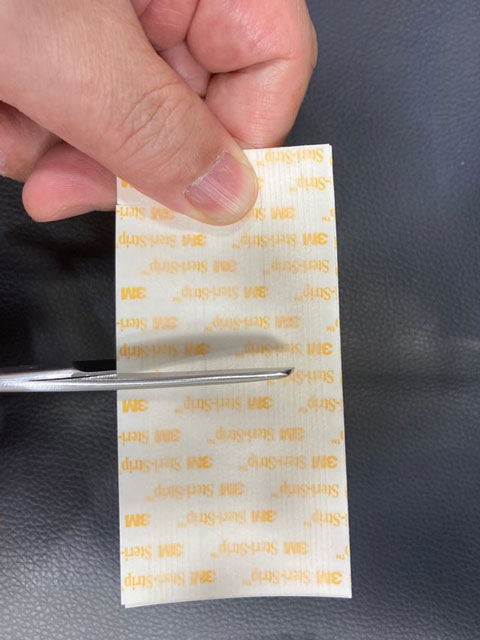
First, cut it in half with scissors.
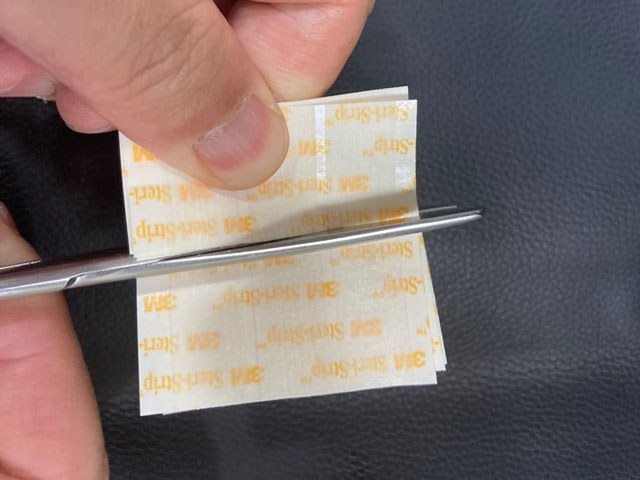
Cut it in half again.
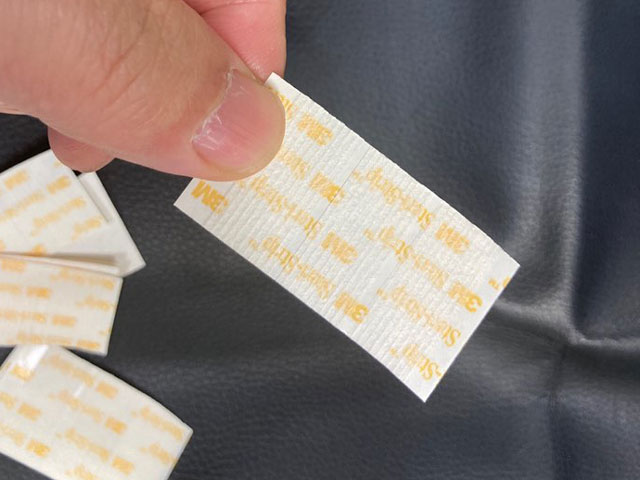
One inch is enough.
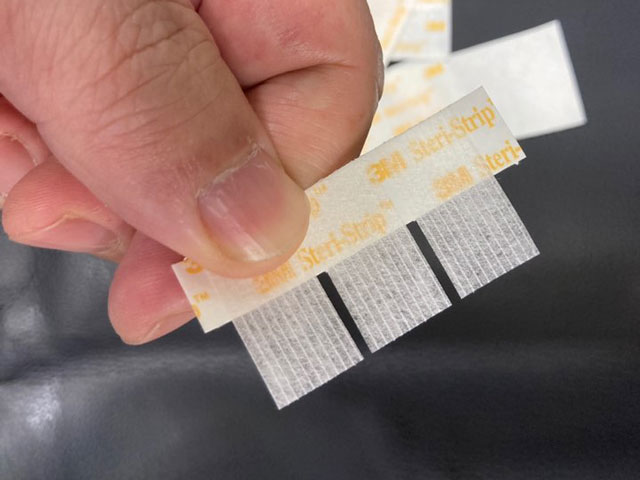
If you tear off the paper behind the tape, you can grab them one by one.
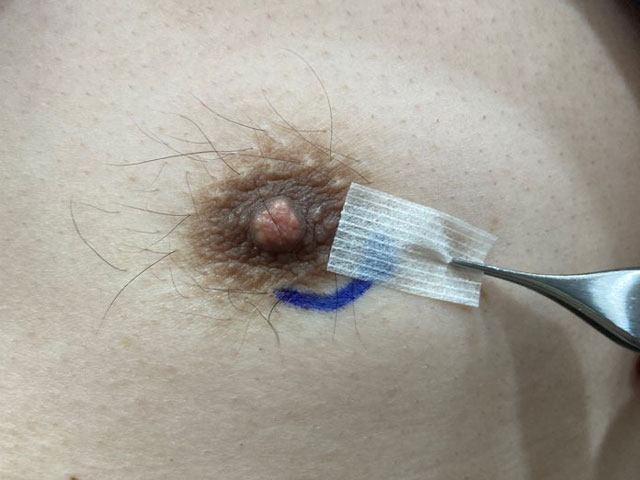
Use tweezers or a clean hand to apply a perpendicular pull to the incision.
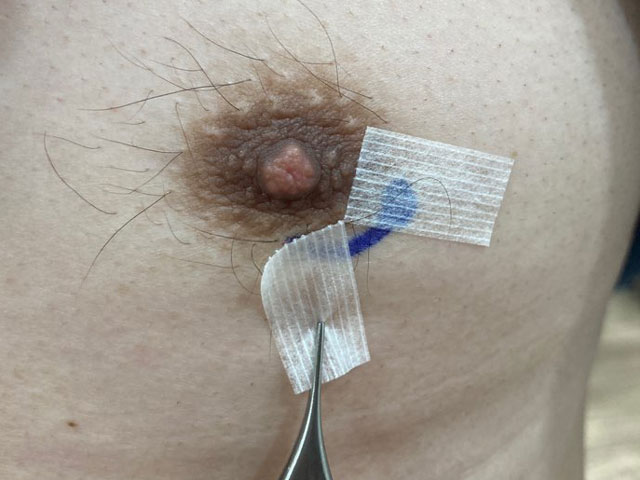
They need to be ventilated, so don’t overlap them, but space them out a bit.
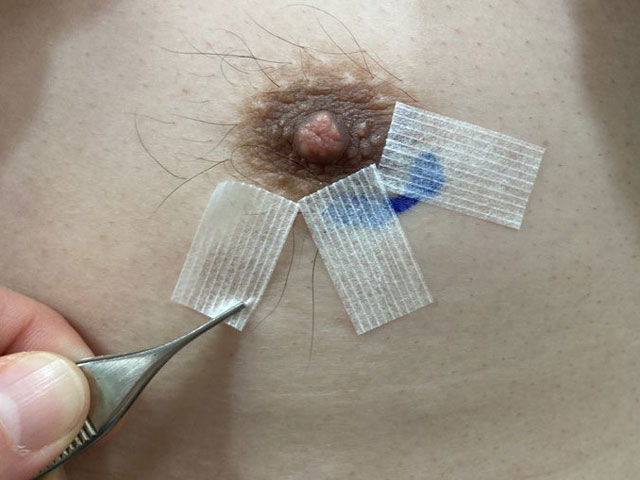
For gynecomastia surgery, two or three sheets are sufficient.
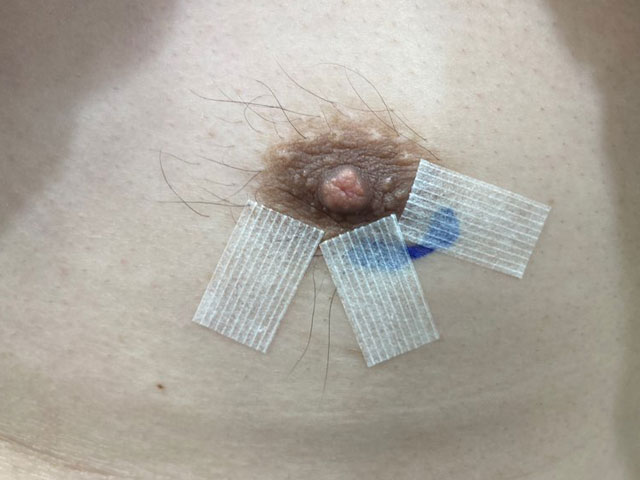
You may want to press it down with the palm of your hand to make sure it sticks firmly.
These Steri-Strips aren’t designed for daily replacement.
Instead, keep them on until they naturally loosen or become worn, and then replace them with new ones.
However, if you notice moisture or blood under the strip, or if the wound appears open, remove the Steri-Strip right away.
In that case, please take a photo and send it to us at Evita Clinic.
Dr. Francis Jeon will review the wound’s condition and advise you on the best course of treatment.

